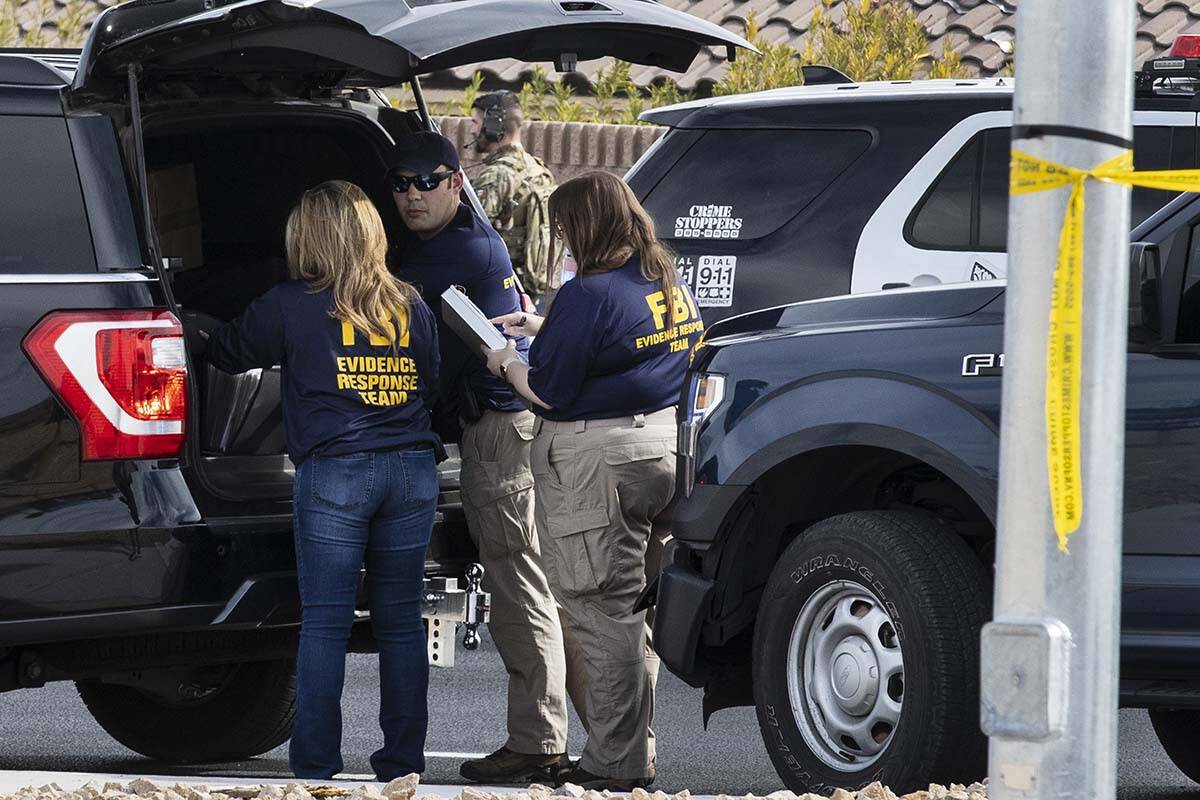SEC sues Las Vegas lawyer, 6 others accused of running Ponzi scheme
The Securities and Exchange Commission has filed a federal lawsuit against Las Vegas attorney Matthew Beasley and six other men accused of operating a multimillion-dollar Ponzi scheme.
From 2017 through March 2022, at least $449 million from more than 600 investors flowed into the scheme through a Beasley Law Group bank account, according to the complaint filed Tuesday.
Those involved in the scheme are accused of using “the bulk of investor money to fund lavish lifestyles, including purchasing luxury homes and properties, a private jet, ATVs, boats, and numerous luxury cars for themselves and their relatives,” according to the lawsuit.
Beasley, 49, also is accused of using investors’ money to pay off gambling debts he owed to his “bookie,” whom he sent nearly $4 million from the scheme, according to the lawsuit.
In March, Beasley was shot by FBI agents who went to his Las Vegas home to question him about the Ponzi scheme, federal prosecutors have said. Beasley came to the door holding a gun, and at one point pointed it at his own head, prosecutors said.
Beasley was shot after he pointed the firearm at agents “in a sweeping motion,” according to prosecutors, and he barricaded himself inside his home for four hours.
During the standoff, the SEC lawsuit alleges, Beasley admitted that the investments he organized with companies controlled by Jeffrey Judd of Henderson were part of a Ponzi scheme. Prosecutors have previously said the scheme was worth $300 million.
Beasley now faces a charge of assault on a federal officer.
‘Ill-gotten gains’
In addition to Beasley and Judd, defendants in the SEC lawsuit are Jason Jongeward of Washington, Utah, and Henderson residents Christopher Humphries, Shane Jager, Roland Tanner and Denny Seybert, who are accused of promoting the investment scheme to multiple investors.
Attorneys for Beasley and Jager did not respond to a request for comment on Wednesday. Humphries’ attorney, Peter Christiansen, and Jongeward’s attorney, Thomas Ericsson, declined to comment.
Seybert did not return a request for comment, and attempts to reach Tanner were not successful.
According to the lawsuit, Jager recruited several promoters to work under his supervision. Judd is accused of compensating promoters who found more investors.
The SEC claims the men offered investments in personal injury settlement contracts that offered high returns. Judd told investors that he handled the investment side of the business, and that Beasley managed relationships with personal injury attorneys and wrote purchasing agreements with the attorneys’ clients.
“(Beasley) confessed that he ‘got names of attorneys’ for the scheme but ‘I never actually talked to them,’” the lawsuit states. “He confessed that as Jeffrey Judd found more investors, ‘I made up more attorney’s deals and just kept growing it.’”
According to the lawsuit, Judd and Humphries told investors that they were prohibited from contacting those involved in the purchasing agreements. But when investors reached out to lawyers listed on the purchasing agreements, the attorneys denied having the clients or knowing about the agreements.
The lawsuit also asks that the defendants and others who received money from the scheme be required to “disgorge all ill-gotten gains.”
Other lawsuits
Beasley has been named a defendant in several other lawsuits, including a class-action lawsuit filed last month in District Court in which plaintiffs also named Wells Fargo as a defendant. The suit claims the bank should have known that Beasley’s bank account, which belonged to his law firm, was not being used for its intended purpose.
Judd also was named as a defendant in a separate suit filed in District Court by Mark Murphy, who claimed he contributed about $700,000 to the investment company.
Another class-action lawsuit was filed March 25 in federal court by plaintiffs Barrett Henzel of Las Vegas; Bryce Bussey of Payson, Utah; and Tina and Anthony Guilder of Trabuco Canyon, California. The suit named Beasley and Judd, as well as their companies, as defendants.
The plaintiffs claim they invested hundreds of thousands of dollars in the scheme. According to the suit, the Guilders and their family members invested $2.1 million and only received $940,000 in returns, while Bussey invested $1.34 million on behalf of himself, friends and family, and received about $331,000 in returns.
Contact Katelyn Newberg at knewberg@reviewjournal.com or 702-383-0240. Follow @k_newberg on Twitter.


















